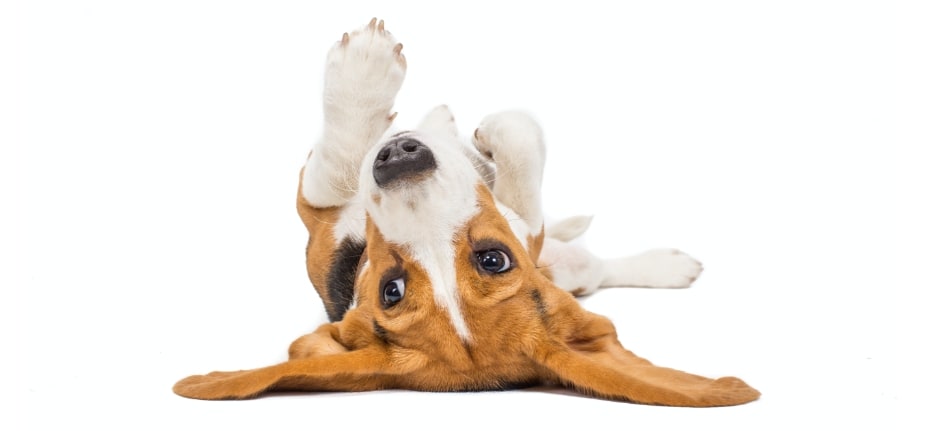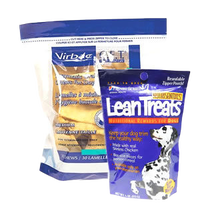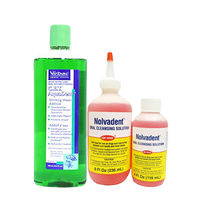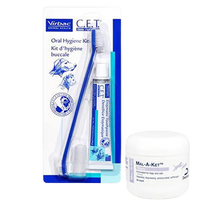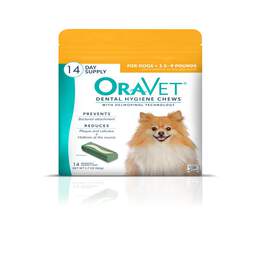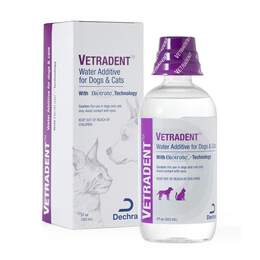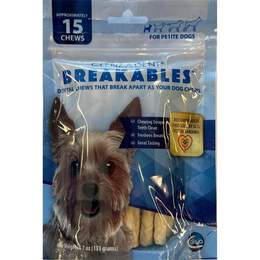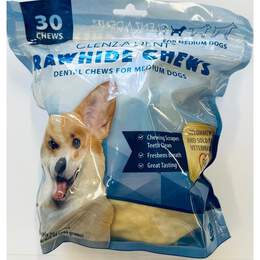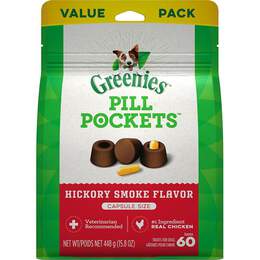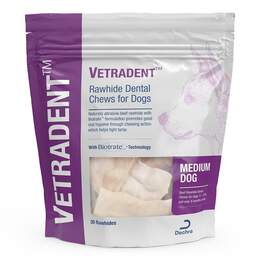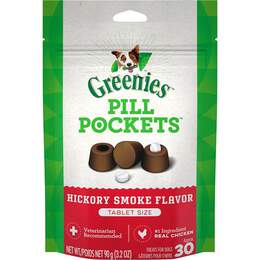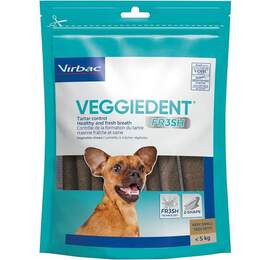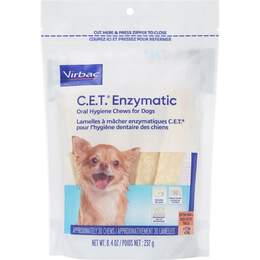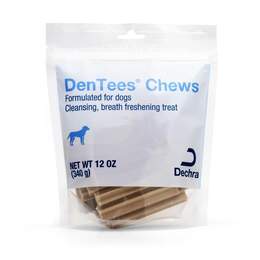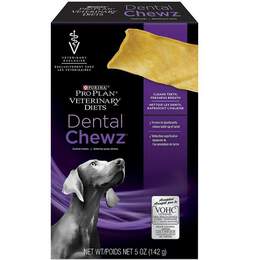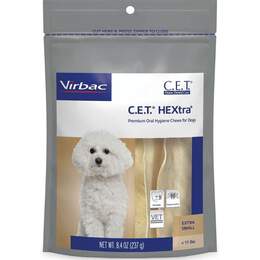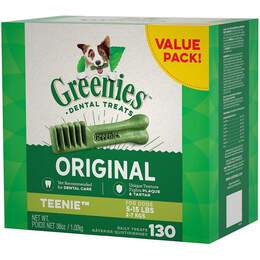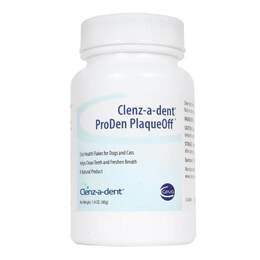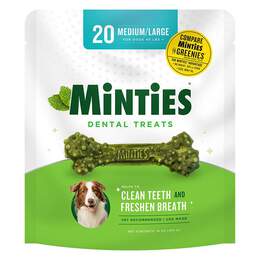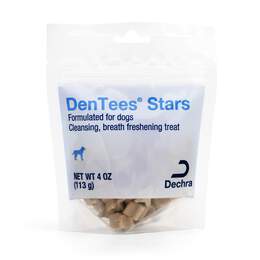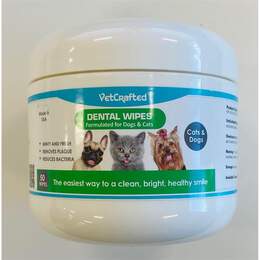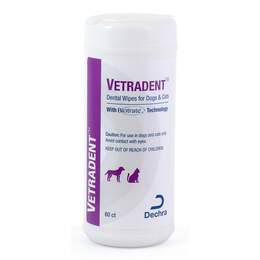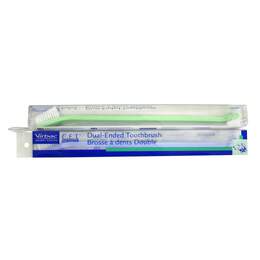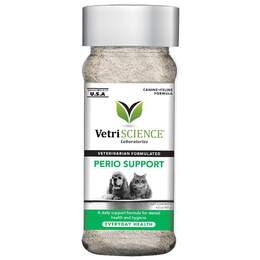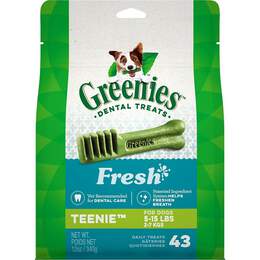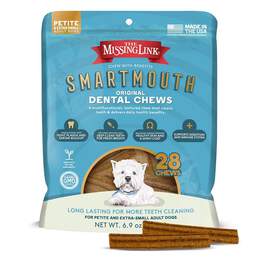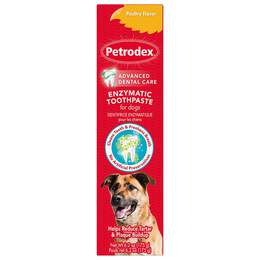Dog Dental
Dogs can benefit greatly from good oral hygiene, and dog dental problems can cause severe infections if left untreated. Scheduling regular teeth cleanings with your veterinarian and brushing your dog's teeth at home are two important parts of dental care for dogs. Just as in humans, oral health is linked to your dog's general health. Yet dog dental care is often ignored.
Add dental care to your dog care to keep your dog's teeth and gums healthy.
Signs of Dental Problems
Dental problems affect a dog's teeth, gums, and the entire mouth. Plaque contains food particles and bacteria, and if it stays on a dog's teeth, it turns into tartar. When the tarter builds up above the gum line, your veterinarian can easily remove it during routine teeth cleaning.
Looks can be deceiving, and just because your dog's teeth look white doesn't mean their mouth is free from dental disease. Tartar that builds up below the gumline is the real issue.
When tartar builds up below the gum line, it can cause inflammation and damage the teeth and cause infections. When dental problems become this serious, your dog is probably experiencing some serious pain.
Sings of dental problems include:
- Red gums
- Bad breath
- Drooling
- Broken or loose teeth
- Vocalization while yawning or eating
- Swollen face
- Difficulty eating
- Loss of appetite
- Painful and bleeding mouth
- Lumps or bumps in the mouth area
- Bloody saliva
- Refusal or inability to eat and drink
- Not wanting their head area to be touched
- Sneezing and nasal discharge
- Chewing on one side of their mouth
Common Dental Problems
Dogs often have the same dental problems as we do, but they can't tell us what they are. Below is a list of common dental issues found in dogs.
Cracked or Broken Teeth
Dogs that are power chewers often suffer from broken teeth. Antlers, bones, and hard plastic can cause teeth to break. The size of a bone or chew can also cause a tooth to break. If an exposed or broken tooth goes untreated, it can become infected. Regularly check your dog's teeth and if you notice a cracked or broken tooth, contact your veterinarian. Your dog may not show pain, but waiting could painful developments down the line.
Root Abscess
If the tooth's root is exposed to bacteria, it can become an abscess. This can be caused by a break, crack, or periodontal disease. Depending on the location of the tooth, your dog's eyes may look infected. If the bacteria have spread, their gums might be swollen.
If your notice swelling around a tooth or on one side of your dog's face, take your dog to the veterinarian immediately. The veterinarian will assess their condition and possibly pull the tooth and clean up the surrounding area to avoid further infection.
Gingivitis
If tartar buildups up below the gum line, the gums will become irritated, red, and inflamed. This condition is called gingivitis. When this happens, plaque bacteria are introduced below the gum line, and the gums become infected.
Periodontal Disease
Gum disease, or periodontal disease, is the result of excess plaque buildup on your dog's teeth. Periodontal refers to the gums and bones around the teeth. Gingivitis can develop into periodontal disease if not caught and treated early.
If your dog's gums look inflamed, they may have periodontal disease. If done before the disease has progressed too far, teeth cleaning by your veterinarian can reverse periodontal disease.
Loose Teeth
If you notice your dog has a loose tooth, it could be due to trauma inside their mouth or periodontal disease. It may also be a sign of illness. Make an appointment with your veterinarian, who will probably decide to pull the tooth.
How to Maintain Dental Health
No one likes it when their dog is in pain, and dental disease can be concerning. Dental care for dogs is one way to prevent these issues. Below are several ways to care for your dog's teeth.
Caring for your dog's teeth will take a lot of additional time, patience, and effort, but it's worth it since it will help your dog stay healthy.
Brush Your Dog's Teeth
One of the easiest ways to take care of your dog's teeth is to brush them regularly. The more you brush their teeth, the healthier they will be. Start when your dog is young, so they get used to having their teeth brushed often. The more you do it, the less they will mind it. Always be super gentle and lavish with praise when they behave while having their teeth brushed.
Make sure to use a toothbrush and toothpaste made for dogs such as CET Enzymatic Toothpaste. Human toothpaste may have harmful chemicals in it. Not only is dog toothpaste formulated to be effective, but it also comes in flavors they love, which makes the process easier. To make it easier to reach all your dog's teeth, use a toothbrush that fits on your finger.
Don't force your dog's mouth open, your dog will probably object to this, and it may scare them. The best way to brush your dog's teeth is to gently lift their lips up and brush the exterior of their teeth.
If you find this process a struggle, ask your veterinarian for help. They can give you tips on how to get your dog to cooperate, or they may brush your dog's teeth for you.
Dog Dental Wipes
DentAcetic Dental Wipes can help you get your dog used to having their teeth cleaned. They are made to be rubbed along the outside of your dog's teeth and remove plaque. They work in much the same way as a toothbrush, but they can't get into the nooks and crannies of your dog's teeth like a brush does.
Dental Treats and Chews
Dental treats and chews can also help keep your dog's teeth healthy. Gnawing on a CET HEXtra Chews can help scrape plaque off of your dog's back teeth. They should not be your type of dog dental care, but they can help keep their teeth clean between brushings.
Professional Teeth Cleanings by Your Veterinarian
Just like we go to the dentist to check our teeth and keep them healthy, so should your dog. Even if you regularly brush your dog's teeth, your veterinarian should check their teeth at least once a year, and they may suggest a professional cleaning to get to areas you can't reach.
Dog dental care is a part of total healthcare for your dog. Your dog may not love it, but they will definitely be happier when they don't have to worry about periodontal disease. At Allivet, you'll find everything you need to keep your dog's teeth healthy.

